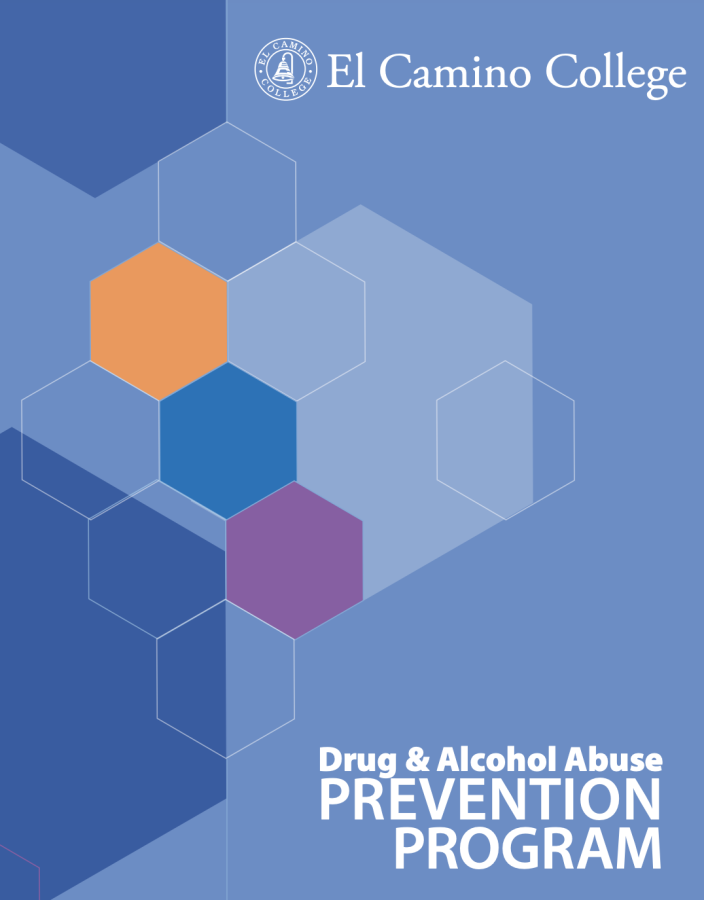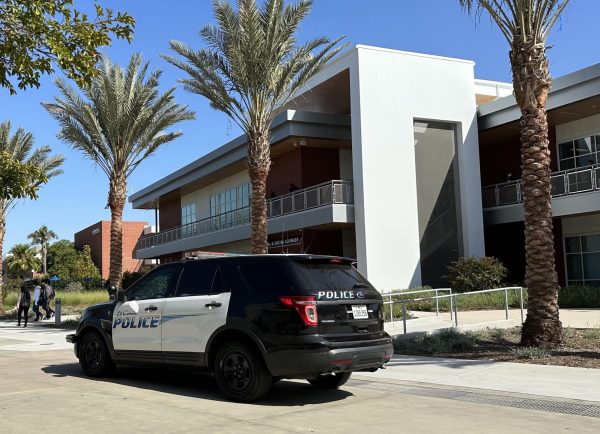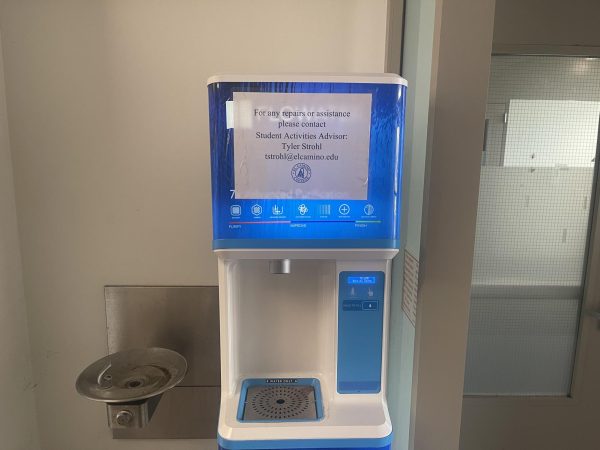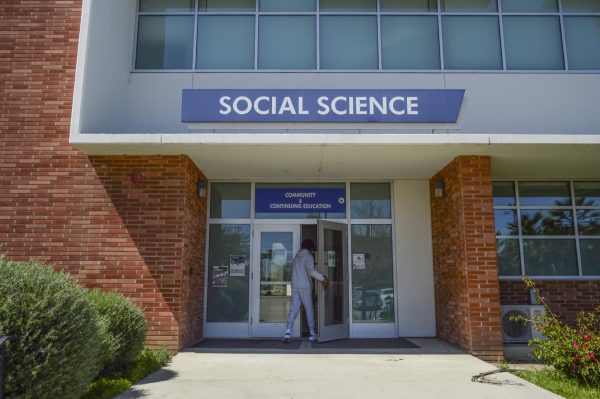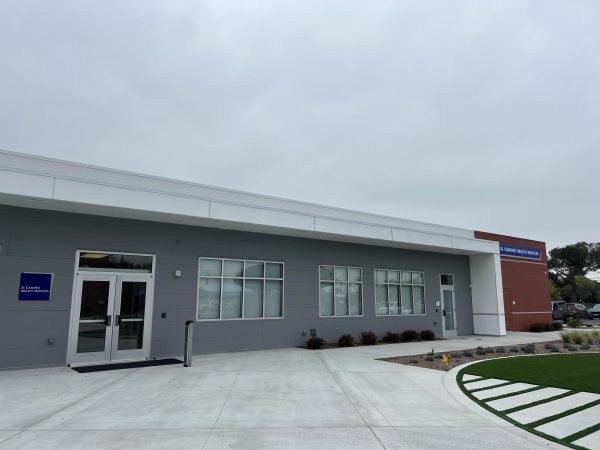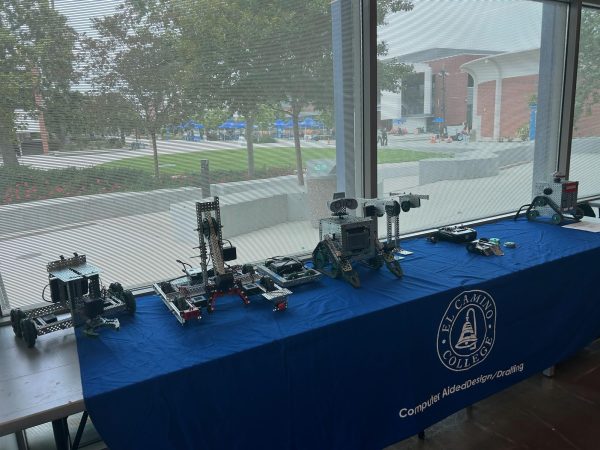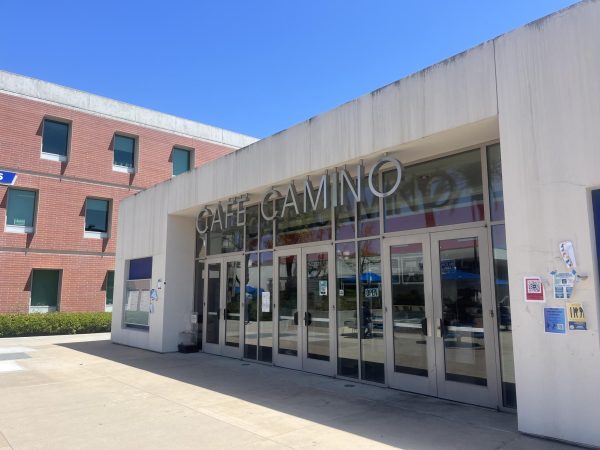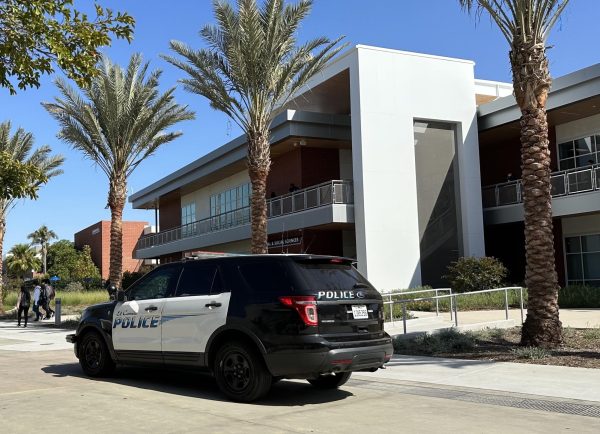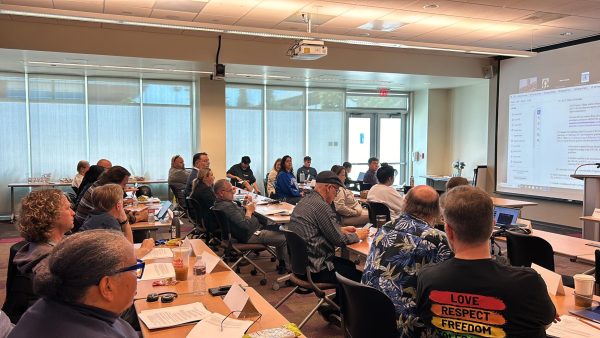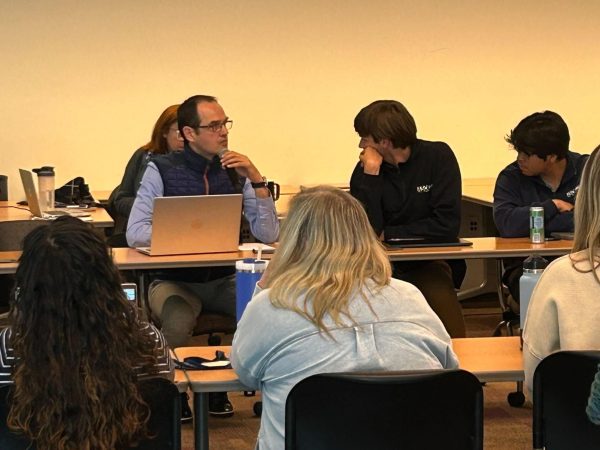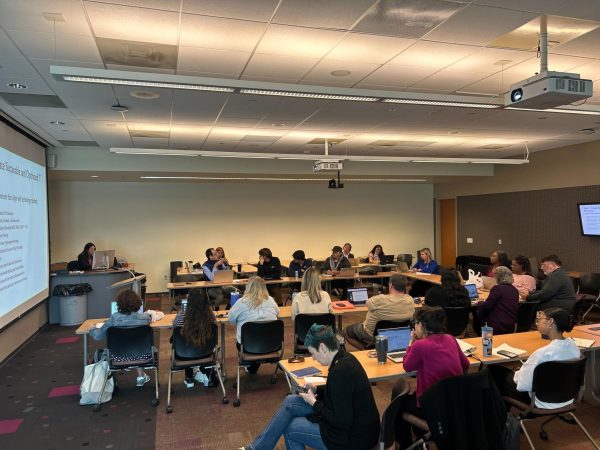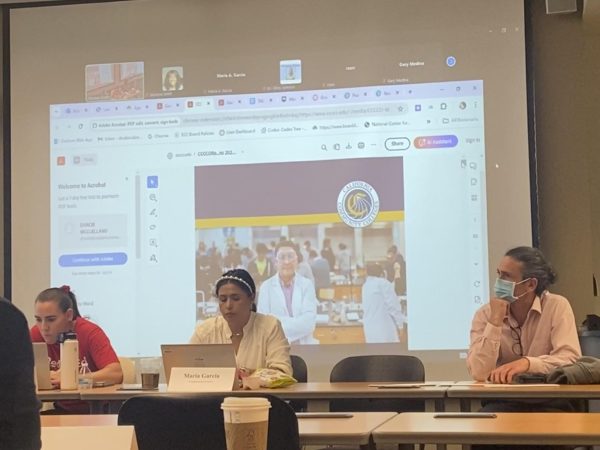Alcohol and Drug Abuse Prevention Program pushes for less disciplinary action
A screenshot of the Drug & Alcohol Prevention Program digital publication that is sent out to all in the El Camino College community. The publication features standards of prohibited conduct, descriptions of health risks involved with abuse and a list of programs both on and off campus to help assist those in need. (Igor Colonno | The Union)
In an attempt to provide resources for students and employees struggling with drug addiction instead of punishing them, El Camino College’s Drug and Alcohol Abuse Program is making some changes to its policy.
Students and employees who are found carrying illicit drugs on campus will no longer be given disciplinary action as a first offense. Instead El Camino will attempt to help those students who are in need.
The program, in compliance with the Drug-Free Schools and Communities Act Amendments of 1989, aims to help those who are currently struggling with drug addiction by providing the resources needed to overcome substance issues.
Some of the resources available for students and employees include psycho-social counseling from clinical psychologists offered in the Health Services Center, community-based treatment services and substance abuse workshops.
In addition to the programs listed for students, there are also programs available off campus for those who are not part of the El Camino community.
Specific services and programs include Alcoholics Anonymous, Community Helpline: Confidential Crisis and Support Hotline and Crisis Text Line. The resources are a part of the LA County district, as El Camino College’s campus resources are run independently by the college.
“We don’t want discipline. We want to help people,” El Camino Police Chief Michael Trevis said.
Trevis said that the Police Department works with the Health Center to make the community aware of the resources available both on and off campus.
“We do work closely with the Health Center to help us with a lot of those concerns, Trevis said. “There are a number of brochures and counseling that can help people overcome alcohol and drug abuse addiction.”
Clery Act Compliance Coordinator Nina Wong said that the Health Center sends a publication with a list of resources and programs related to drug and alcohol addiction every semester.
If a student gets caught using a medically permitted substance, the person will not be punished, however, the police will further investigate the case if it is damaging the student’s health.
The effectiveness of the program’s new and different approach has not yet been confirmed by El Camino’s Crime Statistics. However, drug and alcohol abuse violations have significantly dropped over the last three years.
El Camino recorded 17 cases in 2018, six cases in 2019 and three in 2020. There has only been one case of alcohol violation recorded over the past three years.
Disciplinary referral violations for drug abuse have also dropped. Three cases were recorded in 2018, four in 2019 and none in 2020. Alcohol violations are decreasing as well showing two cases in 2018, one in 2019 and none in 2020.
ASO President Jana Abulaban told The Union that she approves of the program and supports its main idea highlighting that it serves the El Camino College community.
“It’s a great initiative, serves a good purpose to students who need help,” Abulabah said.
Editor’s Note: Corrected misplacement of paragraphs 21 Sept. 2022 at 6:11 p.m.


